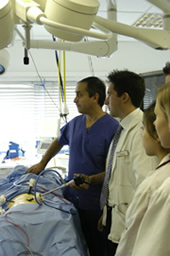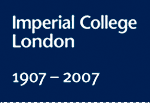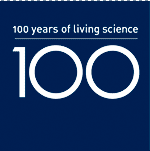Completed projects
Academic mission projects
- Paul Hamlyn Chair of Surgery
- Chair in Experimental Physics
- B. C. H. Steele Chair in Energy Materials
- Institute for Mathematical Sciences
 Paul Hamlyn Chair of Surgery
Paul Hamlyn Chair of SurgeryProfessor Sir Ara Darzi, Head of the Division of Surgery, Oncology, Reproductive Biology and Anaesthetics, was appointed to the newly established Paul Hamlyn Chair of Surgery in December 2005. The Chair, generously endowed by the Helen Hamlyn Trust in memory of the late Lord Paul Hamlyn, is part of a drive to foster collaboration between Imperial College, the Institute of Cancer Research and the Royal Marsden NHS Foundation Trust. It will develop the strengths of all three organisations in academic surgery, helping to improve the quality of scientific research and patient care in the area of cancer surgery.
Sir Ara and his team are internationally respected for their innovative work in the field of minimally invasive surgery, including the development and use of surgical robots and image-guided surgical techniques such as the Da Vinci robot, the first minimal access system to eliminate tremor in a surgeon’s hand. Through the work that the new Chair will enable him to carry out, Sir Ara hopes to make a real difference by reducing the physical and psychological trauma in cancer surgery through minimally invasive techniques.
back to top
Chair in Experimental Physics
In 2005, the Lee-Lucas Chair for Experimental Physics was endowed by an alumnus and his wife. Professor Donal Bradley of the Department of Physics, who carries out research on control of the performance of organic semiconducting materials and devices at the molecular-level, was appointed to the Chair. His research has the potential
for a wide range of practical applications, including solar energy conversion, flexible electronic circuits, imaging devices and optical communications.
 B. C. H. Steele Chair in Energy Materials
B. C. H. Steele Chair in Energy MaterialsProfessor Brian Steele worked in the Department of Materials at Imperial College for 37 years and was instrumental in the development of solid oxide fuel cells. He was also a founding member of spin-out company Ceres Power, which is commercialising fuel cell technology.
Following Professor Steele’s death in 2003, a new Chair in Energy Materials, the first named Chair in the Department of Materials, was established in 2006 through a generous donation to the Department by his family.
"This Chair is a very appropriate way to honour Brian and his pioneering work. He was a great champion of Materials Science and started the first undergraduate course in the College and went on to inspire a generation of students in this new subject."back to top Institute for Mathematical Sciences
Professor John Kilner - Professor of Materials Science
 It has long been recognised that mathematics is vital to advancing new research techniques across the scientific, engineering, medical, and business disciplines. The key aim of the Institute for Mathematical Sciences is to bring together mathematicians and researchers from other departments to tackle fundamental problems.
It has long been recognised that mathematics is vital to advancing new research techniques across the scientific, engineering, medical, and business disciplines. The key aim of the Institute for Mathematical Sciences is to bring together mathematicians and researchers from other departments to tackle fundamental problems.
In June 2006, the Institute was formally opened by alumnus Dr David Potter, who had provided a vital founding donation of £1.25 million to this project in 2004.
"Much of the research carried out at Imperial has the potential to make a real difference in the lives of people around the world and the Institute for Mathematical Sciences is very much within this spirit.back to top
For this reason, I am delighted to be a founding donor of Imperialís Institute for Mathematical Sciences which draws together academics from all faculties to apply mathematical techniques to real problems such as the dynamics of infectious disease amongst populations and climate change."
Dr David Potter (PhD Physics 1970), Chairman and Founder of Psion, Founding Donor of Imperialís Institute for Mathematical Sciences
© 2007 Imperial College London

Science and technology have the power to transform the world. Today’s complex challenges demand new approaches, fresh thinking and scientific innovation. Donate now to support research and education at Imperial.
Where your support can make a differenceGive now

The impact of our research is global, from hand pumps in Africa, to the world’s fastest train in Shanghai.
Read more about our current academic projects
